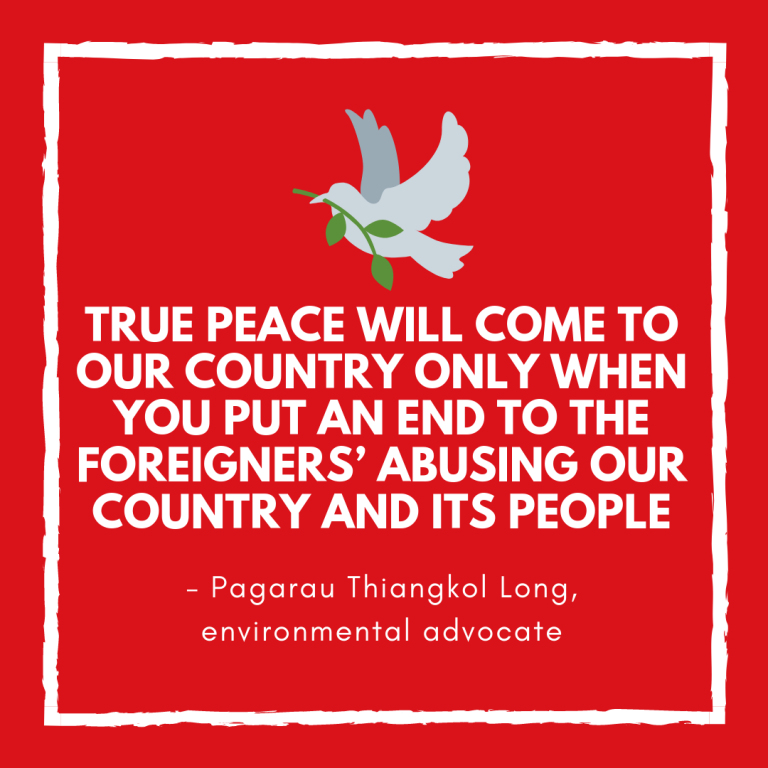23.10.2017
Autumn’s rains bring badly-needed water to South Sudan – and, unfortunately, malaria,
pneumonia and other water-thriving diseases. Frequent victims of these diseases are children
already savagely weakened by malnutrition.
Clinics supported by Sign of Hope, a Germany-based NGO, have devoted themselves to rescuing
these children. Here is the story of one such rescue.
Abeny Marial is a year old. She is – quite obviously – sick and hungry. Her body bears the
marks of malaria and malnutrition, including the characteristically bulbous stomach. She is also
shivering with cold. It’s the rainy season in South Sudan, and the season’s relatively low
temperatures are a source of suffering for both Abeny and her family as a whole. For a simple
reason: they can’t afford warm clothes. The only source of warmth and comfort for the little girl is
her mother’s lap and her mother’s breast.
To little avail. Her mother, whose name is Awet, has no milk for her. She too is undernourished. No
wonder that Abeny cries incessantly.
There is some good news in store for Abeny. She is about to get caring and expert treatment. It will be
provided by a clinic in the town of Rumbek, which is located in central South Sudan. Awet has brought
her suffering daughter to the clinic.
The treatment starts with a check-up of Abeny’s condition. “She is suffering from acute
undernourishment”, reports Chol Ajoung, who is responsible for nutrition at the clinic, which is operated
by the local diocese.
Malnutrition weakens children’s immune systems, making them in turn susceptible to falling sick
with malaria, pneumonia and other diseases. This is what happened to Abeney, says Awet. She
reports that Abeney was healthy until a few months ago. “She started gradually losing weight. I
thought the problem was that I no longer had any milk for her. But this weight loss was followed
by nausea, diarrhea and loss of appetite. I realized that she had malaria,” she concludes.
The clinic’s check-up is followed by treatment. It is comprised of medication. This enables
Abeney to keep down the highly-nutritious food that the clinic is also providing her – with good
results. Abeney’s fever has gone down. Her diarrhea is gone. She is still, however, contending
with malaria itself.
A family flees
In addition to Abeney and Awet, the Marial family is comprised of Mayom Marial (40) and five other
children. Neither Mayom and Awet ever had the opportunity to go to school. Mayom is a livestock
herder.
This used to be a good livelihood in South Sudan. It guaranteed the herders and their families – and
especially those complementing it by doing a bit of farming – enough to eat and perhaps even a bit of
money to spend.
One of the many conflicts raging throughout the Rumbek region brought that relatively
prosperous time to an end for the Marial family, which lived in a village 24 kilometers north of Rumbek.
An attack on their village sent the Marials fleeing. The attackers robbed them of their livestock
and burned down their hut.
The Marials escaped with their lives. Some of their neighbors weren’t so lucky.
Awet tells the story: “It was dark out. We were woken by shots and screams. We ran outside. It
was a scene of absolute chaos. The darkness made it impossible to distinguish between the
attackers and the defenders. In their panic, cows ran around wildly. This was highly dangerous.
The cows injured many people
After the attackers took our livestock, we grabbed our children and ran for our lives. We couldn’t
take any of our possessions with us, not even food. The only things that we had to wear were
those we had put on to sleep.”
Like hundreds of thousands before them, the Marials and many of their fellow villagers fled to
the safety apparently offered by a large communities – in their case, Rumbek.
Their flight ended in Nyang-Kot, a refugee camp located five kilometers north of Rumbek. Awet tells
what happened upon arrival: “We had a bit of luck. Relatives of ours were already in the camp, and they
gave us whatever help they could. Life here is very hard. We have to buy everything we need. We hope
that things calm down in our village, and that we can return there.”
Hope for Abeny
Life is improving for the Marials. Like Abeny herself, her family is also being assisted. They are
receiving food – primarily rice, beans, oil, sorghum, sugar, salt and milk – and such essentials of life as
blankets and soap.
Abeny has started responding well to the medication. She has started eating porridge and drinking milk.
This, in turn, has calmed her down. Awet adds: “I now have the hope that she will get well soon and we
can soon bring her back to the rest of our family. I thank God and the people that are helping us.”

